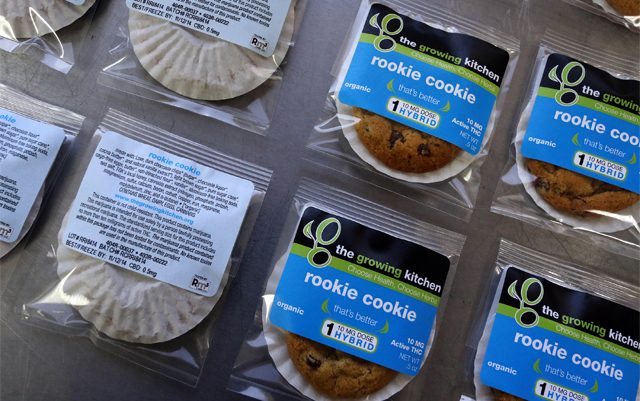The state of Nevada is working hard to get their recreational cannabis industry up and running before 2018 – with sales possible as soon as July if all goes well – which means a bunch of marijuana-related bills are working their way through legislation right now. One of the more recent bills that was introduced to the Senate aims to further restrict processors of edibles, who already have to adhere to strict packaging requirements. Senate Bill 344 would make it illegal for cannabis edibles to have sugar in them unless they are considered baked goods – effectively banning candy like lollipops and gummies, as well as sodas, chocolate bars and other items that are widely popular in legal cannabis states.
If passed, this bill would make Nevada’s regulations for edibles the strictest in the nation – there are already regulations put into place that require tamper-proof packaging, and that they be marked as marijuana edibles, but this bill takes it a lot farther. By banning all sugary treats other than baked goods it leaves very little option for the makers of edibles, who would likely have had a large variety of sweet treats for customers to choose from. Even those baked goods that are allowed would be required to be in opaque packaging, and cannot have cartoon characters, mascots, action figures, balloons, fruits, toys or anything else that may be enticing to children on them.
Along with the lengthy list of things that cannot be depicted on edibles or their packaging, the bill also sets specific dosage requirements that would have to be on the label of each individual product. It specifies that a single serving edible would be no more than 25mg of THC, whereas an edible with multiple servings could have no more than 400mg of THC. Some lawmakers feel that 25mg is too high of a limit for a single serving – noting that other states suggest that 10mg is a good starting point for someone with little to no experience with edibles.
Although lawmakers are trying to be supportive of legal cannabis, one of the fears that was spread throughout the campaign by opposition was the possibility of children getting into marijuana-infused edibles – which has led to some extremely strict regulations in the form of this bill. Many people believe that it is not the state’s job to prevent children from accidentally getting into edibles, but rather the parent’s job to ensure they are responsible and keeping such things out of reach (as you would with an open alcoholic beverage or a prescription medication).
If this bill were to become law then it would definitely create issues for producers of edibles – who will have a much more limited number of products to choose from, as well as less options for packaging and advertising that is attractive to customers. With a proper combination of fair regulations and proper education both for children and parents, the fear of children consuming cannabis edibles could become a lot less of a worrisome issue.






